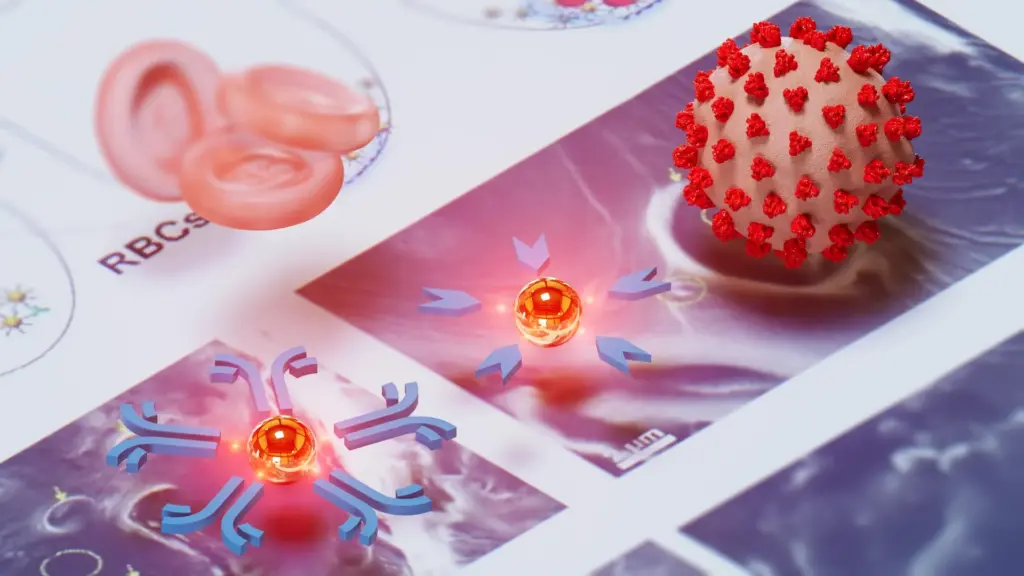Imagine a world where diagnosing infectious diseases is as easy as taking a rapid COVID-19 test, but with significantly higher accuracy and broader applications. This future is closer than you think, thanks to a groundbreaking new diagnostic device called NasRED (Nanoparticle-Supported Rapid Electronic Detection). Developed by researchers at Arizona State University, NasRED promises to revolutionize global healthcare by providing rapid, accurate, and affordable disease detection, even in the most remote locations.
This innovative technology boasts lab-quality accuracy without the need for expensive equipment or specialized training, making it a potential game-changer in combating infectious diseases worldwide. Its portability and simplicity make it ideal for use in resource-limited settings, where access to reliable diagnostics is often severely lacking.
What is NasRED? 🤔
NasRED is a portable diagnostic device designed to detect a wide range of diseases with unparalleled accuracy. At its core are tiny gold nanoparticles engineered to detect minuscule amounts of disease-related proteins. These nanoparticles are coated with molecules that act like magnets, binding to specific proteins released by viruses or bacteria during infection. The device then measures the amount of light passing through a sample, with less light indicating the presence of the disease.
The beauty of NasRED lies in its simplicity. It requires only a small sample of bodily fluid (blood, saliva, or nasal fluid) and delivers results quickly, without the need for complex laboratory equipment or highly trained personnel. This makes it accessible to frontline healthcare workers globally, regardless of their location or resources.
How Does it Work? 🔬
The process is surprisingly straightforward. The specially engineered gold nanoparticles, coated with either antibodies or antigens, are mixed with a small sample of bodily fluid. If the target disease is present, the nanoparticles will clump together and sink to the bottom of the tube. NasRED uses an LED light and a custom electronic detector to measure the amount of light passing through the sample. Less light signifies the presence of the disease, providing a clear and immediate result.
The sensitivity of NasRED is remarkable. It can detect diseases even when only a few hundred molecules are present, a concentration significantly lower than what’s required by standard laboratory tests like ELISA or PCR. This high sensitivity is crucial for early detection, which is key to effective treatment and preventing outbreaks.
The Impact on Global Health 🌍
Infectious diseases remain a leading cause of death worldwide, particularly in low- and middle-income countries. Limited access to reliable diagnostic testing often leads to delayed or missed diagnoses, resulting in preventable deaths and disabilities. NasRED directly addresses this critical challenge by providing a fast, affordable, and portable solution.
The device’s low cost (estimated at just $2 per test) makes it particularly valuable in resource-constrained settings. Its ease of use empowers healthcare workers in remote areas to diagnose and treat infections promptly, preventing outbreaks from escalating into widespread epidemics. This is particularly crucial for diseases like HIV, Hepatitis C, and Lyme disease, which often go undiagnosed due to limited testing capabilities.
Addressing Diagnostic Gaps 🩺
NasRED’s accuracy is significantly superior to existing rapid diagnostic tests. Studies show it is roughly 3,000 times more sensitive than ELISA, requires far less sample volume, and provides results much faster. This leap in sensitivity is crucial for early detection, especially for diseases with low prevalence but high risk. The modular design of NasRED also allows for adaptability; the same platform can be used to detect various diseases by simply swapping out the nanoparticles.
The potential applications of NasRED extend beyond infectious diseases. Its high sensitivity and portability make it a promising tool for early cancer detection, real-time monitoring of chronic illnesses, and improved public health surveillance. The researchers are actively working to further miniaturize the device, aiming to create a convenient home testing option in the future.
Key Takeaways 🔑
- NasRED is a highly sensitive, portable, and affordable diagnostic device.
- It uses gold nanoparticles to detect disease-related proteins with remarkable accuracy.
- NasRED is significantly more sensitive and faster than existing tests like ELISA and PCR.
- It has the potential to revolutionize disease detection globally, particularly in resource-limited settings.
- Its applications extend beyond infectious diseases, including cancer detection and chronic illness monitoring.
NasRED represents a significant advancement in diagnostic technology. Its potential to improve global health is immense, offering new hope for early disease detection, much like other recent breakthroughs such as the effort to repurpose cancer drugs for Alzheimer’s treatment. As the technology continues to evolve, we can expect even greater advancements in its capabilities and accessibility, ushering in a new era of precision diagnostics.
Source: A $2 gold nanotech test that detects deadly diseases in minutes



